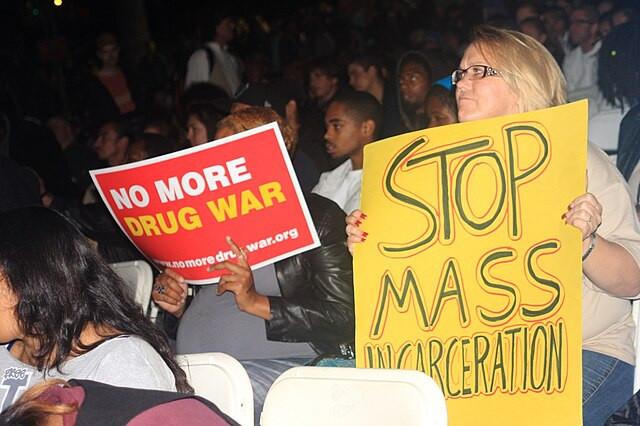
On Oct. 31, the Washington State Department of Commerce unveiled a comprehensive two-year, $200 million Community Reinvestment Planat. Authorities say that the plan seeks to repair the racial, economic and social disparities from the "war on drugs," which had a higher impact on the Black, Latino and Indigenous communities.
The plan invests 64 percent of the $200 million into the Clark, King, Pierce, Snohomish, Spokane and Yakima counties. King and Yakima have the highest number of Hispanics in the State, with about 218,000 in the former and 120,000 in the latter. Piece County has a Hispanic population of roughly 100,000.
The counties and communities were chosen through a multiplicative index using unemployment rates, the percentage of people of color and a social vulnerability index, combined with an analysis of violent crime rates, incarceration and recidivism data.
The WSDOC Reinvestment Plan said the investments would result in long-term economic benefits to the state, specific regions, and communities in the form of new jobs, job retention, increased personal wealth or higher incomes
How have these groups been disproportionately affected?
According to the fact sheet, the government created laws and sanctions for drug offenses that unjustly targeted specific communities and individuals in America. In Washington, the greatest impact was on Black, Indigenous, and Latino communities, as mass incarcerations exacerbated family separations, while criminal records and legal financial obligations amplified economic disparities, making it challenging to access housing, employment, education, healthcare and other essential resources.
"Governor (Jay) Inslee and the Legislature have established Washington state as a leader in beginning to take steps, centered in the community, to mitigate the devastating impacts of historic drug policies and mass incarceration," Washington State Department of Commerce Director Mike Fong said in the press release. "This plan offers a blueprint for how we can begin to reinvest together in the affected communities and families."
How will the funds be distributed?
According to the Washington State Department of Commerce, there was collaboration with the state Office of Equity and the Harriet Tubman Foundation for Safe Passage to ensure the funds are allocated towards various community partners. They placed an emphasis on direct outreach to communities that have been most adversely affected by the war on drugs. Local advisors and researchers with first-hand experience of incarceration, family separation, and the impacts of over-incarceration for minor drug possession violations were recruited to ensure a holistic approach.
The plan details a set of grant programs that will focus on four core areas—economic development, civil and criminal legal assistance, community-based violence intervention and prevention services, and reentry programs.
The $200 million will be distributed with $138 million for economic development grants, $30 million for community-based violence intervention and prevention services, $12 million for reentry programs and $8 million for civil and criminal legal assistance. An additional $12 million has been allocated to support local advisory teams, build capacity and provide technical assistance to impacted individuals and communities.
The plan includes various grant programs, some of which are extensions or adaptations of existing initiatives. Others represent novel concepts that will require more time and cooperation to launch, including subsidized lending and financial assistance programs, which are set to be designed and implemented in the coming winter months.
These are the grant programs that will be invested in, the amount and in some cases, the economic benefit goal
- Local Advisory Teams, $8 million goal of local guidance
- Technical Assistance, $4 million goal of economic benefit
- Loan Guarantee Fund, $17 million, economic benefit goal of $87 million
- Black, Latino and Indigenous-Led Lending Agency, $15 million, economic Benefit Goal of $45 million
- Homeownership Capital Accelerator, $15 million, economic benefit goal of $29.5 million
- Individual development accounts, $25 million, economic benefit goal of $816 million
- Blended Capital Enhancements, $25 million, economic benefit goal of $39.6 million
- Cannabis Business Grants, $3 million, economic benefit goal, $8 million
- Asset Building Initiatives, $3 million, no economic benefit goal available
- Financial Coaching and Mentorship, $10 million, economic benefit goal, $20 million over 2 years
- EcSA Career Accelerator Incentives, $10 million, no economic benefit goal available
- EcSA Business Support, $15 million, economic benefit goal, $24 million
- Vacating Criminal Records and LFO Relief, $2 million, economic benefit goal, $70 million
- Legal Representation, $6 million
- Violence Reduction, $10 million, economic benefit goal, $550 million
- Youth Sports Capacity Building, $5 million
- Barber/Beauty Shop Health Navigation, $5 million
- Community Healer, $10 million
© 2025 Latin Times. All rights reserved. Do not reproduce without permission.





